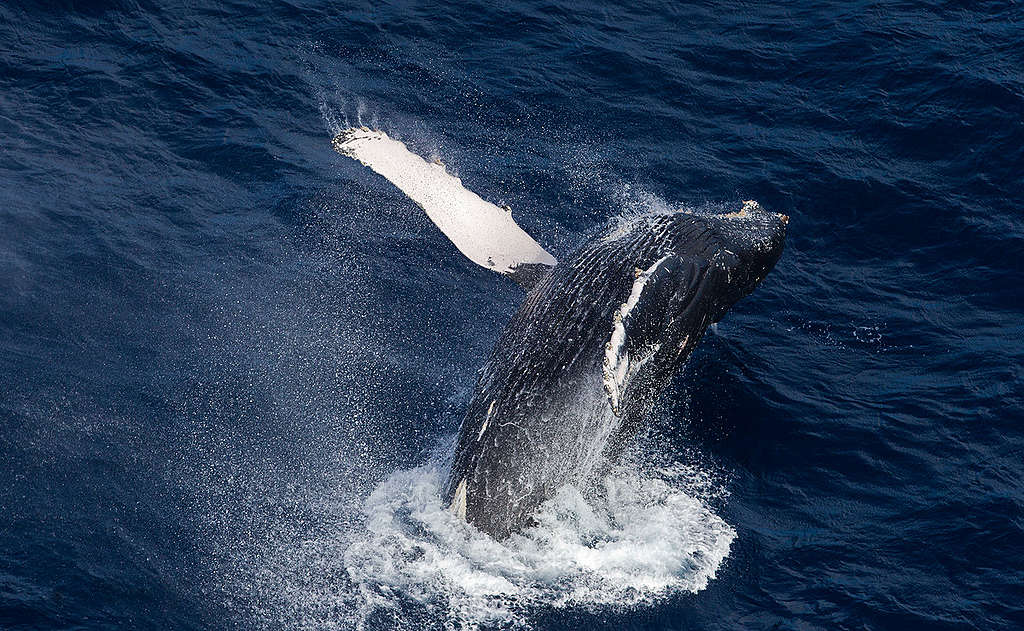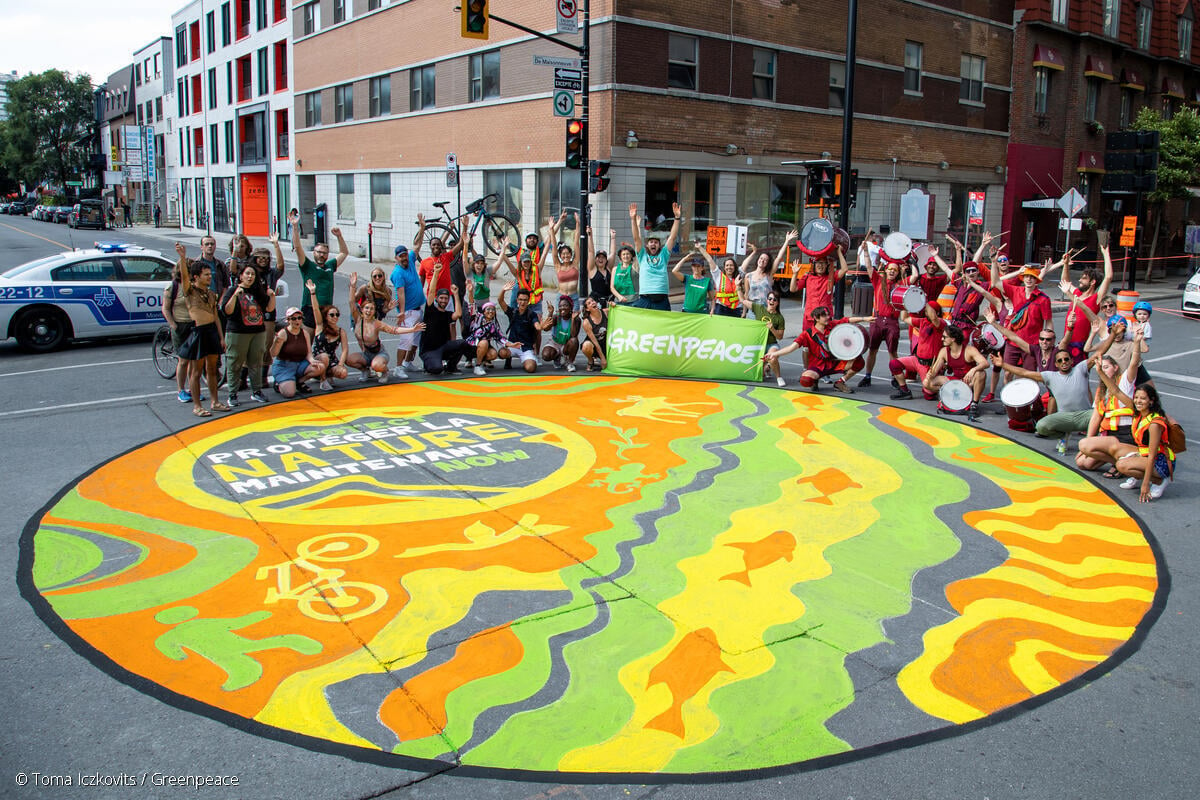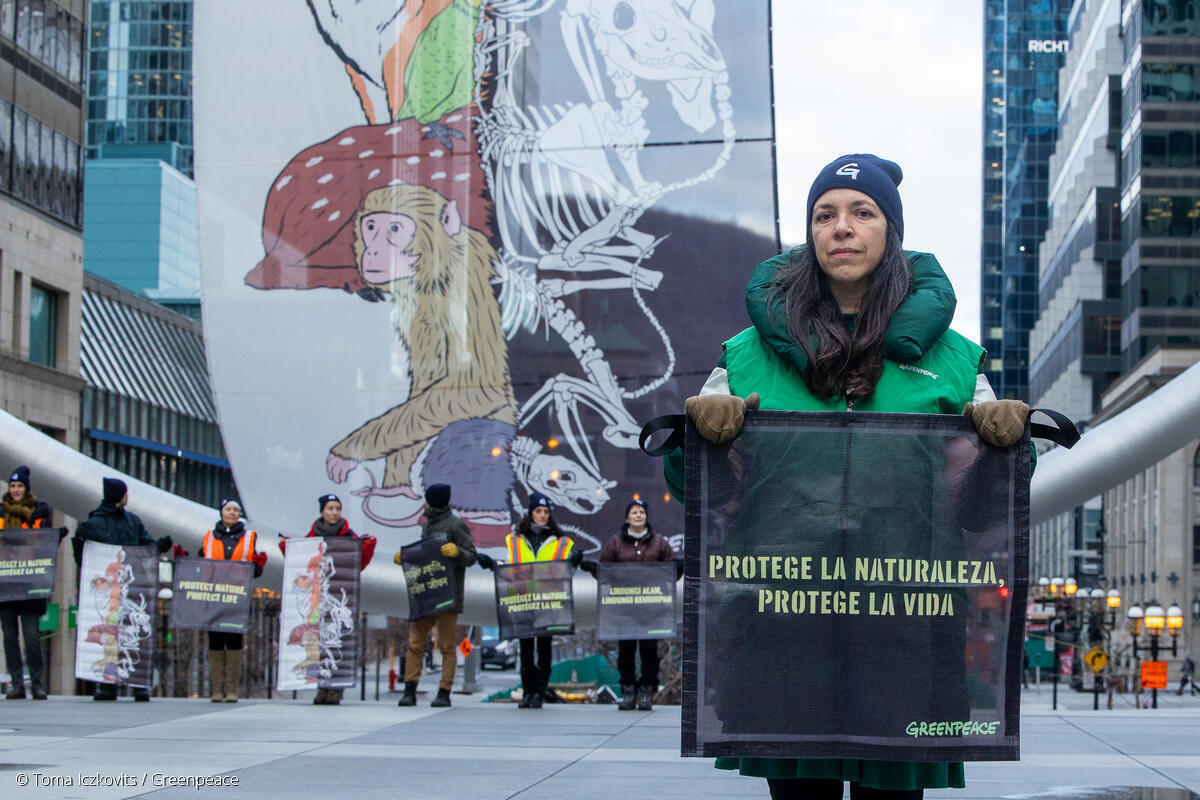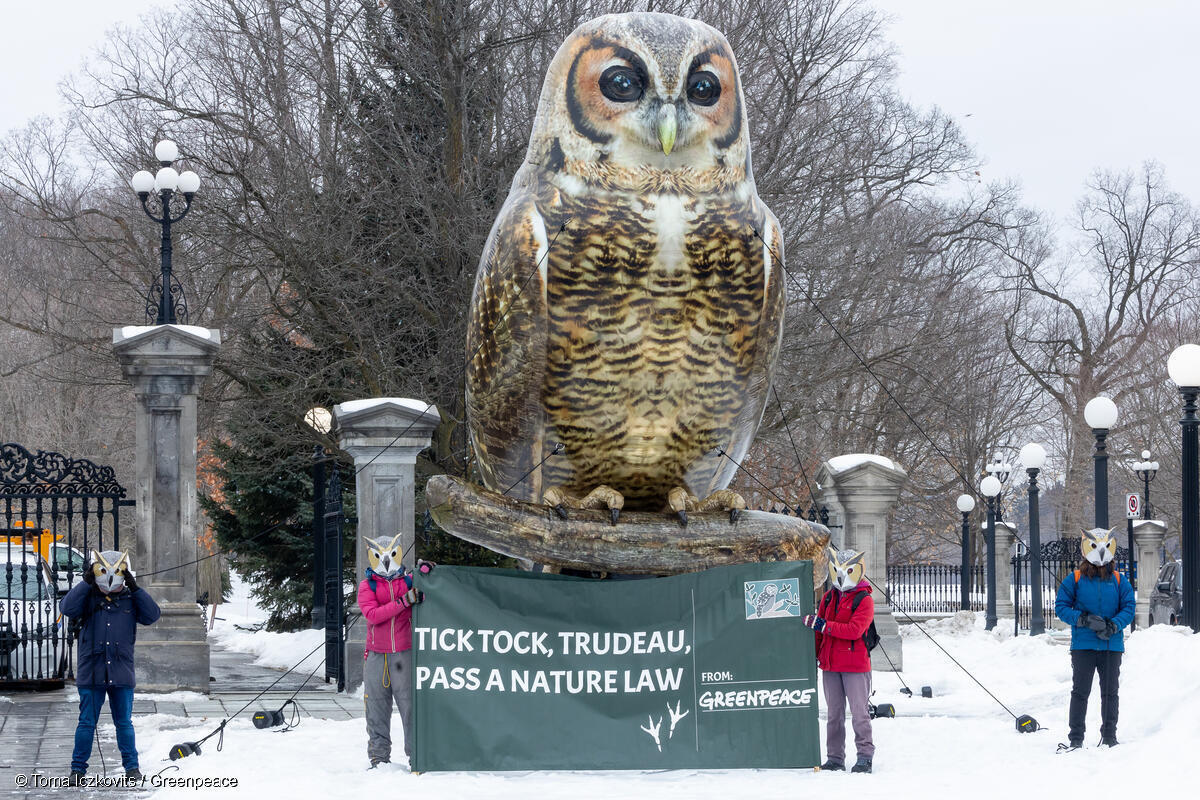Oscar winners, Wallace and Gromit creators, and Greenpeace launch heartbreaking new animated film about the plight of the oceans
Montréal – Oscar-winners Olivia Colman and Dame Helen Mirren, along with Game of Thrones’ Bella Ramsey and Stranger Things’ David Harbour, star in a new animation that highlights the plight of the oceans, released globally today by Aardman Animations and Greenpeace.
Award-winning studio Aardman, makers of Wallace and Gromit, Chicken Run and Shaun the Sheep, have teamed up with Greenpeace to create a powerful short film showing the threats our oceans are facing, and the importance of protecting them. The film, Turtle Journey, tells the heartbreaking story of a turtle family attempting to get home, in an ocean that is under increasing threat from climate change, plastic pollution, oil drilling and overfishing.
Watch the film in english or in french.
Oscar winning actor Olivia Colman, voicing the turtle family’s mother, said:
“Home is the most important thing we have. A safe space for us and our family to live. But we’re taking that away from turtles, whales, penguins and so many other incredible animals. Most of us instinctively love the oceans and care about the amazing marine life that lives there, but far fewer people know how much pressure they are under. If we don’t act now we risk causing irreversible harm to our oceans and losing species for good.
“I’m thrilled to have worked on this heartbreaking film with Greenpeace and Aardman – it’s so important. Our oceans face so many threats, some I wasn’t even aware of before this, and sadly the story of this turtle family trying to get home in a damaged and changing ocean is a reality for so many marine creatures that are having their habitats destroyed by human activities. I hope this film inspires more people to take action to protect our oceans.”
Aardman’s distinctive blend of dry humour and painstakingly crafted stop-motion animation are seen in a new light in this short film, as they tackle the crisis facing the planet’s oceans. The film ends with an urgent call for global action to protect the oceans.
Sarah King, Head of Oceans & Plastics at Greenpeace Canada, said:
“Governments have talked for too long, without delivering the level of protection our oceans need to regain health after decades of destructive human activity. In Canada we are starting to see progress on ocean protection off our coasts, but so far not the leadership needed to secure protection beyond the country’s jurisdiction. We need urgent global action to fully protect 30% of the world’s oceans, a target agreed by scientists as the minimum that marine life needs to recover and be resilient in light of changing oceans.”
“The new Trudeau government has committed to advocate for increased ocean protection at international meetings, and we need that commitment turned to action. At the United Nations this year, we need Canada to make real protection possible by supporting a strong Global Ocean Treaty. A strong treaty would provide a framework for creating a network of fully protected marine sanctuaries and meeting the minimum 30% target. We cannot afford a weak treaty that maintains the status quo: a broken, fragmented system of ocean governance that’s allowed extreme damage to ocean life. This is the year to turn things around, and as a country with three coastlines, Canada must step up to lead the change.”
Aardman’s film was produced for Greenpeace’s global Protect the Oceans campaign. Greenpeace is calling for 30% of the world’s oceans to be fully protected in a network of ocean sanctuaries by 2030. A strong Global Ocean Treaty, currently under discussion at the United Nations, is a vital first step towards achieving this target.
ENDS.
Notes to editors
Greenpeace is currently sailing from the North Pole to the South Pole to highlight the threats facing the ocean, reaching the Antarctic this month, as part of a campaign for a Global Ocean Treaty covering international waters.
Behind the scenes and media gallery.
Turtles Under Threat: Why the world’s ultimate ocean wanderers need protection is a report written by Greenpeace International in collaboration with Damien Chevallier and other scientists from the Institut Plurisciplinaire Hubert Curien (IPHC) of Centre National de la Recherche Scientifique (CNRS) who conducted the tracking research as part of Greenpeace Pole to Pole expedition in June 2019.
For more information, please contact:
Laura Bergamo, communications officer, Greenpeace Canada
[email protected]; +1 438 928-5237

The seas provide half of our oxygen, food for a billion people, and a home for some of the most spectacular wildlife on Earth. But the impacts of climate change, pollution and destructive industries mean they’re in more danger than ever.
Take action


